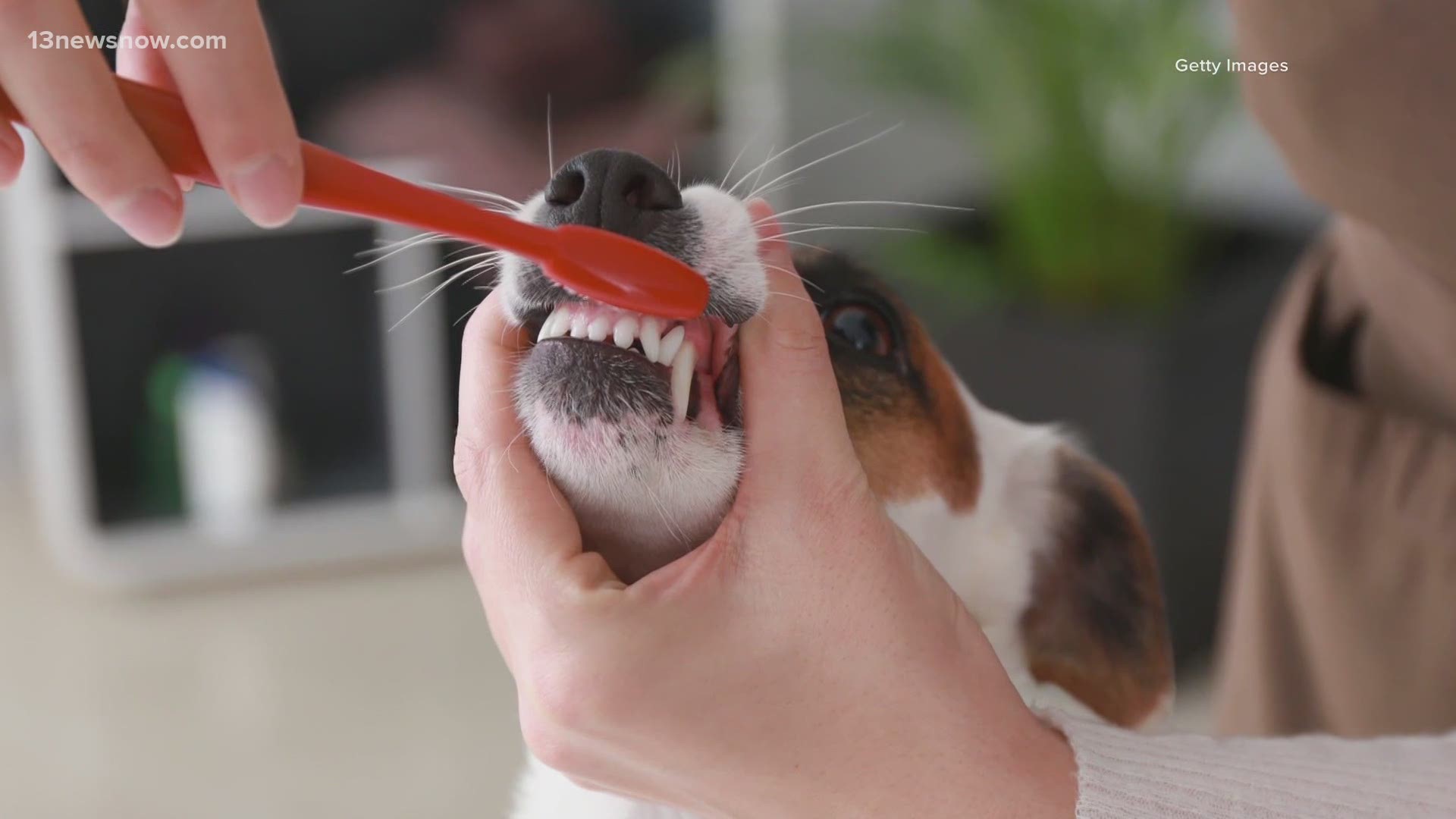Dogs and cats do mostly everything with their mouths. This is why it's even more important to make sure their teeth and gums are healthy.
“Dogs have 44 teeth, they have a lot more than humans do. Cats have 42 teeth. So a lot more than humans, so there’s a lot jammed in that space,” Veterinarian Dr. Cooke tells us.
So what may be some signals that it may be time to get your dog or cat examined?
“The big thing you’re going to notice is the smell, they’re going to get in your face and you’re going to smell that mouth. That is the number one thing that people pick up is the odor. When the odor starts it is time to take a look,” says Dr. Cooke.
You can also take a peek inside your dog's mouth to look for anything abnormal.
Cleaning your dog's teeth isn’t as simple as a visit to the dentist like we are used to. It’s actually an in-depth procedure that requires general anesthesia.
“That’s what most people fear and because we fear it, we keep putting it off, putting it off and then delaying, all that’s happening is the dental disease is worsening.” Dr. Cooke says.
“It’s a big procedure, a lot of times people think it is just cleaning the teeth, it is a thorough oral exam.” Dr. Cooke tells us.
Overall pet dental health can be tackled at home as well, in between vet visits.
“One of the best things you can do is brush your dog's teeth. It is recommended twice a day, but I tell people we’re lucky to eat dinner as a family so let’s shoot for brushing twice a week," Dr. Cooke explains.
Also, Dr. Cooke says there are a lot of dental chews out there that do a good job and your dog will love them!
How often should your dog undergo one of these extensive dental cleanings and exams? Well, the good news is that Dr. Cooke recommends once every three to four years.
Also, pay close attention to the bones and toys your dog chews on, in some cases, they may be way too hard and cause damage to their teeth.
“We recommend things that will give, they need to be edible and they need to be able to give most of our veterinary products hit those marks. No antlers, nothing hard.” Dr. Cooke says.
Keeping all of that in mind your dog’s chompers should be in excellent condition throughout their life.

